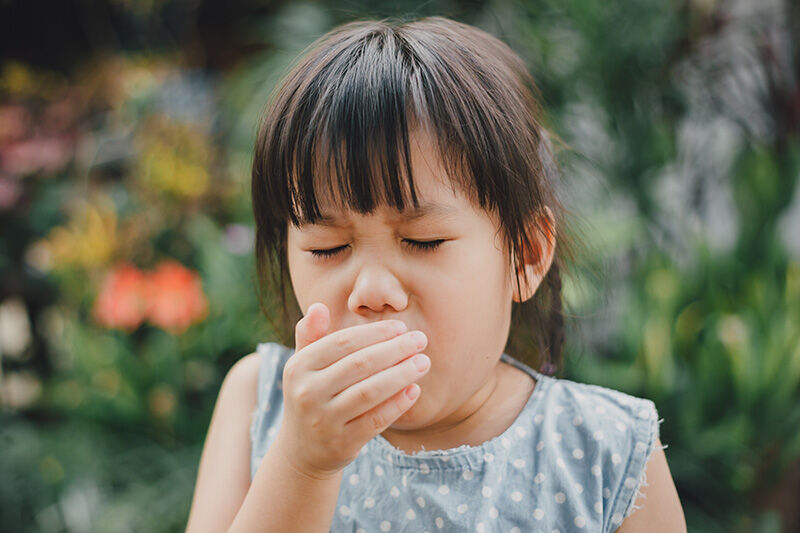Whooping cough warning: Pertussis cases surge, one fatality in southern Thailand

The Disease Control Department (DCD) in Songkhla province reported an alarming increase in the number of cases of pertussis, commonly known as whooping cough, particularly among children. The department confirmed the diagnosis of two patients in the region, with one fatality in Pattani province.
The disease, caused by the bacteria B. pertussis, is highly contagious and spreads through coughing, sneezing, and contact with the patient’s respiratory secretions. The DCD noted that the most affected age group is under one year old, accounting for 46.15% of cases.
Dr Chalermphon Osothphrom, director of the DCD in Songkhla revealed that pertussis is an infectious respiratory disease caused by the bacterium B. pertussis, resulting in inflammation of the respiratory tract.
“It easily spreads through coughing, sneezing, and contact with the patient’s secretions and personal items, and is most commonly found in children.”
The symptoms of pertussis can be severe, potentially leading to death, especially in children. The disease manifests 6-20 days after exposure, beginning with low-grade fever, runny nose, and cough, which may continue for about a week, reported KhaoSod.
“Subsequently, the main symptoms of the disease, which include persistent coughing fits, occur. Patients can cough 5-10 times or more consecutively, leading to breathlessness. This is followed by a deep, noisy inhale, known as the whoop, alternating with coughing fits. These symptoms can last for two-three months.”
To prevent the spread of the disease, patients should be isolated, particularly young children who have not yet received the full course of vaccinations. It is important to maintain personal hygiene, including wearing masks and frequent hand washing, to reduce the spread of the disease through the patient’s nasal and oral secretions.
Dr Chalermphon further advised that people who have been in close contact with the patient should monitor themselves for any coughing symptoms for at least two weeks. Even fully vaccinated children who have been in close contact with the patient should consult a doctor.
Dr Chalermphon strongly recommends that children under six years old receive the full course of vaccinations according to their age bracket (two months, four months, six months, 1.5 years, and a booster at four years old). Furthermore, he emphasised the importance of closely monitoring children for any symptoms and seeking immediate medical attention if any are observed.
Follow more of The Thaiger’s latest stories on our new Facebook page HERE.
Latest Thailand News
Follow The Thaiger on Google News:


























